
The FiTI focuses on public access to information for 12 thematic areas of marine capture fisheries, such as fishing licenses, vessel registry, catch data, subsidies and beneficial ownership.

The FiTI focuses on public access to information for 12 thematic areas of marine capture fisheries, such as fishing licenses, vessel registry, catch data, subsidies and beneficial ownership.

Transparency needs trust! This is why the FiTI is implemented through National Multi-Stakeholder Groups, equally represented by government, companies and civil society.

Transparency requires a two-sided approach: making data available in the public domain, and ensuring that stakeholders can draw reliable conclusions from it.

Countries are not expected to have complete data for every thematic area from the beginning. Instead, public authorities must disclose the information they have, and where important gaps exist, demonstrate improvements over time.

The FiTI does not replace or duplicate existing government systems. Instead, the need for national authorities to develop and strengthen their own systems for collecting and publishing information online is emphasised.
The FiTI Standard is an internationally recognised framework that sets clear requirements on what is expected from countries regarding transparency in marine fisheries.
It was developed in a 2-year global consultation process with government representatives from fishing nations, industrial and artisanal fishing entities, civil society and intergovernmental organisations.
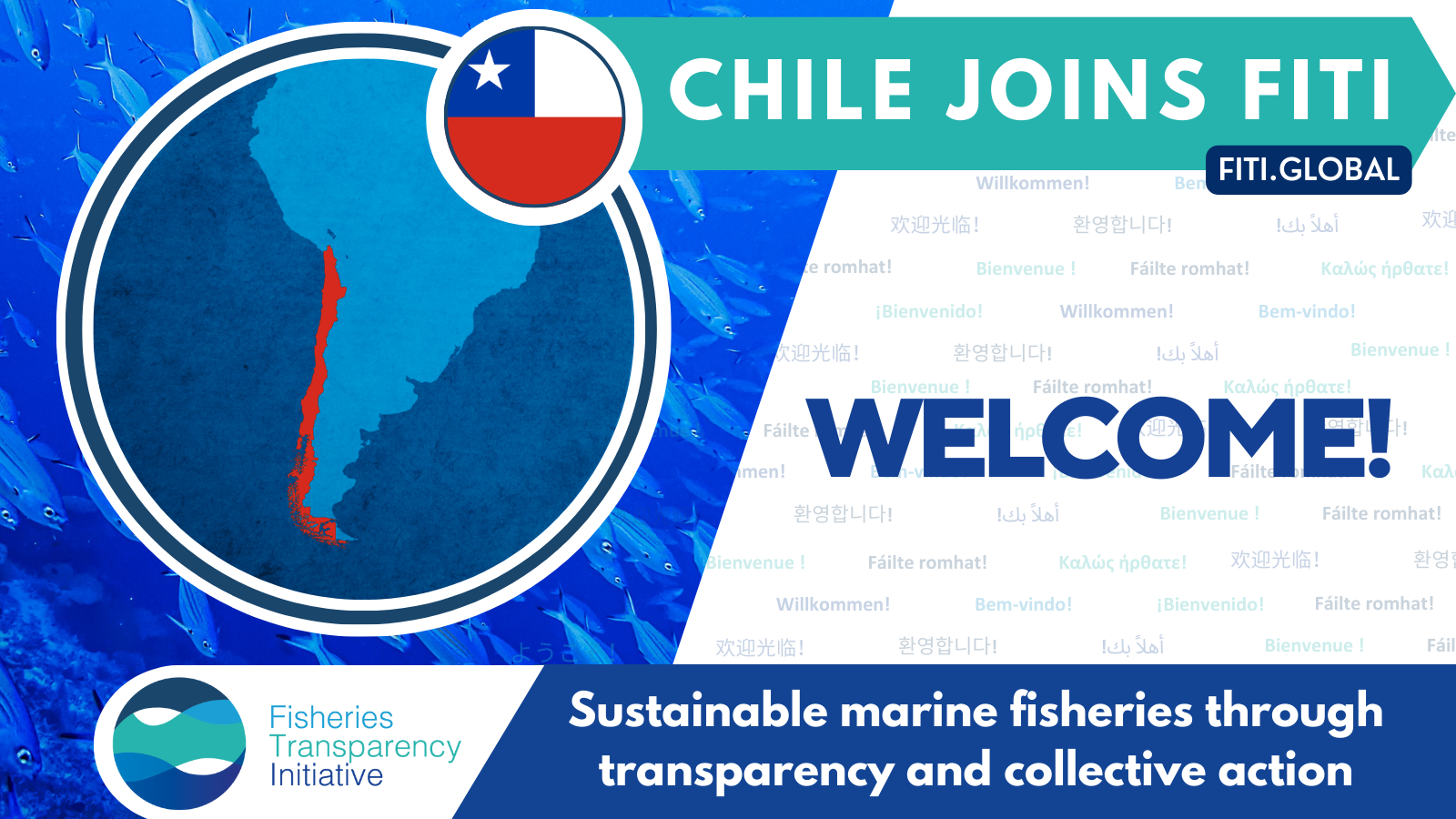
17 April 2024. Chile has made history by becoming the first top ten fishing country1 to join the Fisheries Transparency Initiative (FiTI). Today, the Undersecretariat for Fisheries and Aquaculture of the Ministry of Economy, Development and Tourism announced Chile’s public commitment to implement the FiTI Standard as part of the country’s Our Ocean 2024 ocean commitments. […]
Mombasa, 27-28 February 2024. The FiTI International Secretariat recently participated in a series of meetings with stakeholders in Kenya to discuss the development of transparent and sustainable tuna fishery management in the country. During the visit, FiTI collaborated with several stakeholders and explored options to promote fisheries management transparency initiatives in Kenya. Currently, Kenya’s tuna […]
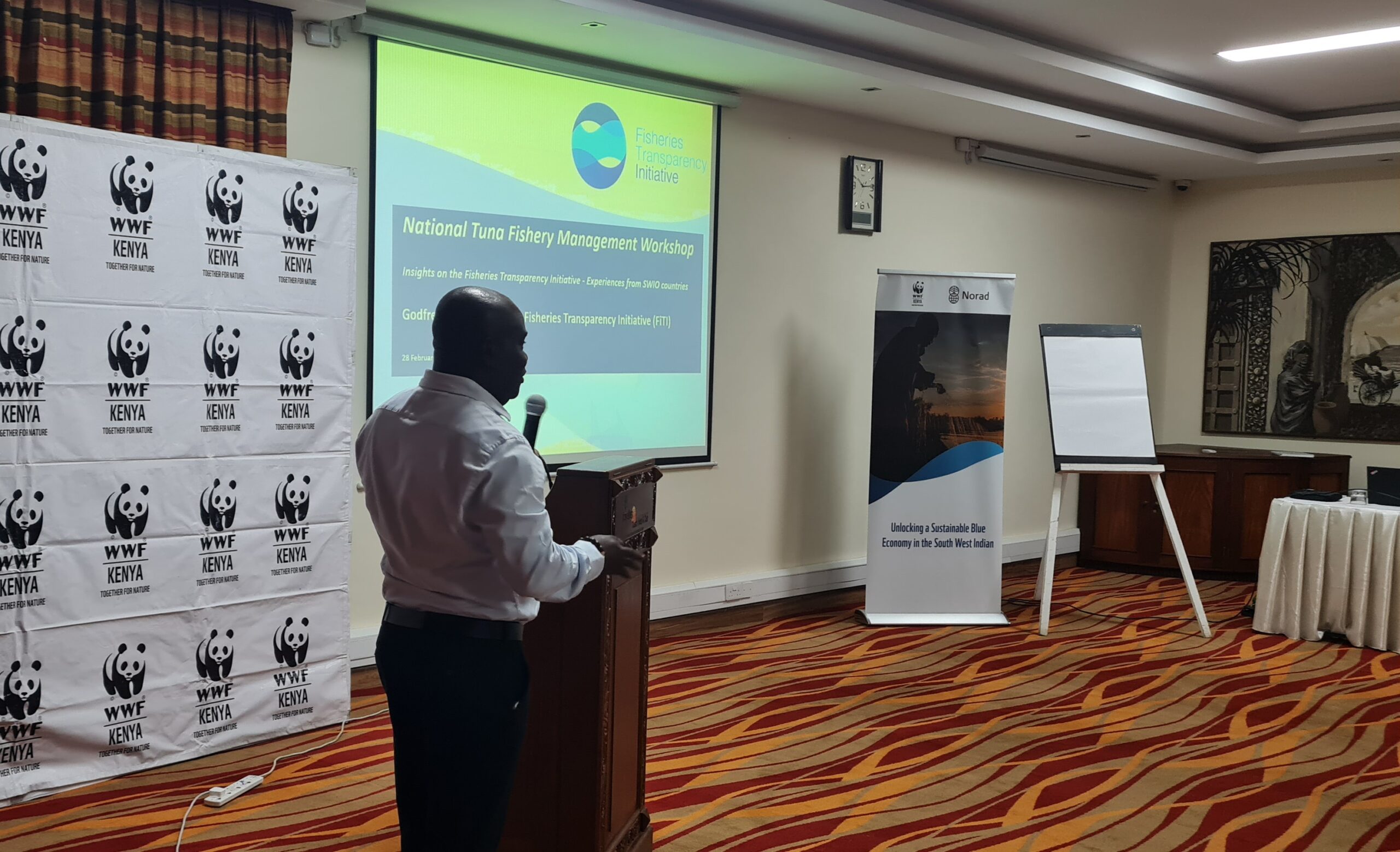
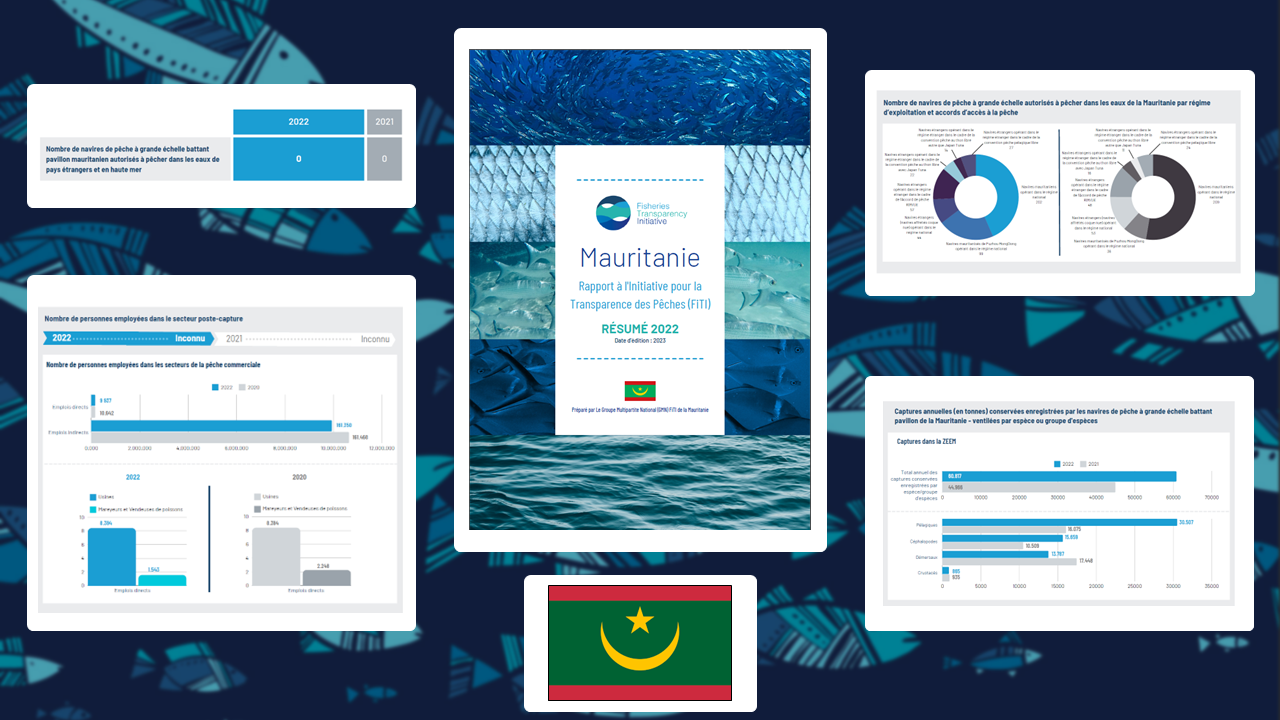
The FiTI National Multi-Stakeholder Group (MSG) of Mauritania has now published its fourth annual FiTI Report, covering publicly available marine fisheries information for calendar year 2022. By publishing this report, the National MSG demonstrates Mauritania’s continuing commitment to improve transparency in marine fisheries management. This report enables all interested stakeholders to better understand the status of the country’s […]
Intuitively, we understand that government transparency is a requirement for effective participation. But why is participation important for fisheries governance? And if transparency can improve participation, what kind of participation should we be aiming for? In our latest transparency brief (‘tBrief’), we attempt to answer these questions and unravel the sometimes vague and often elusive […]
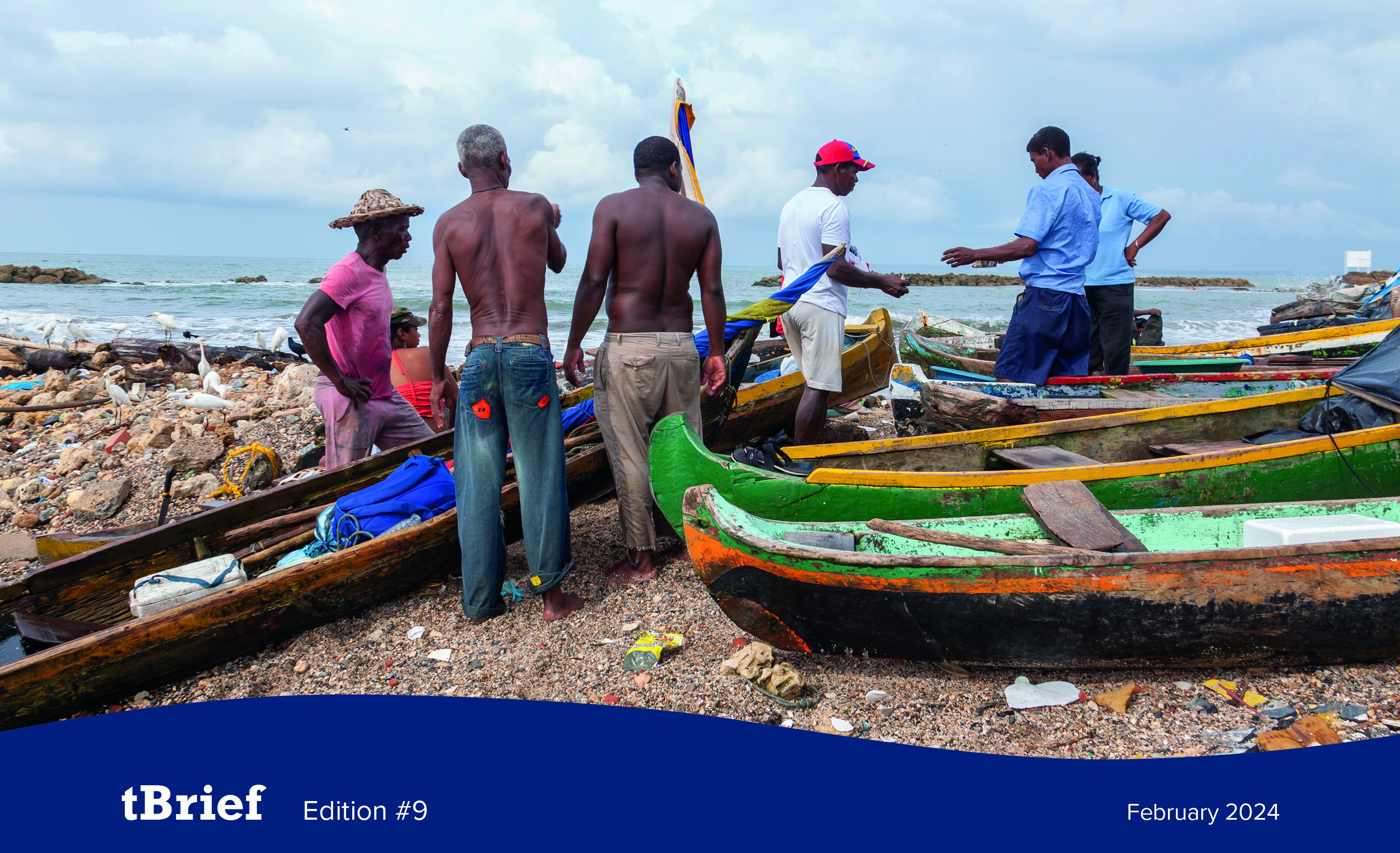
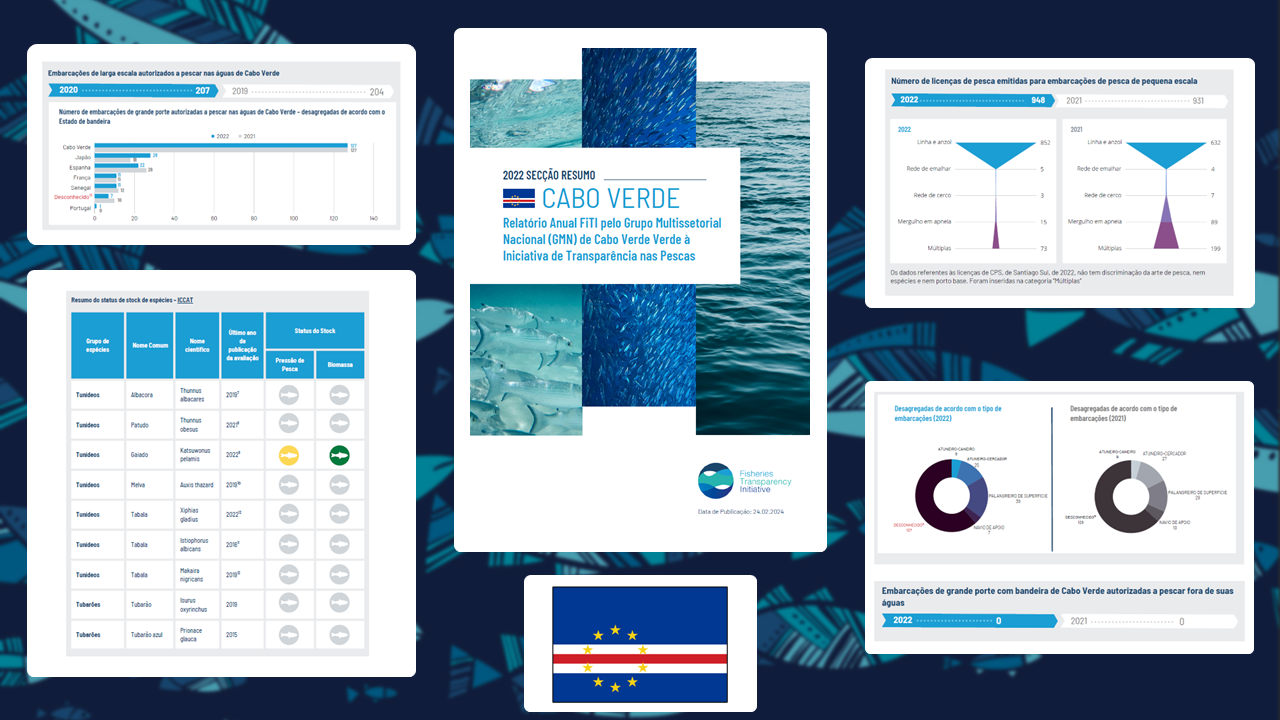
PRAIA – Cabo Verde‘s Multi-stakeholder Group (MSG) has taken a critical step towards fisheries transparency this week, publishing their first FiTI Report and re-emphasising their commitment to improving governance within the marine fisheries sector. Although this new report provides public access to a range of previously unpublished information, it also highlights a diversity of challenges.
Conakry, 17-27 January 2024. The FiTI International Secretariat recently participated in a series of meetings with stakeholders in the Republic of Guinea to support the country in finalising its FiTI application process and developing the first Action Plan of the Conseil National pour la Pêche, l’Aquaculture et l’Economie Maritime (CNPAEM), which assumes the functions of […]
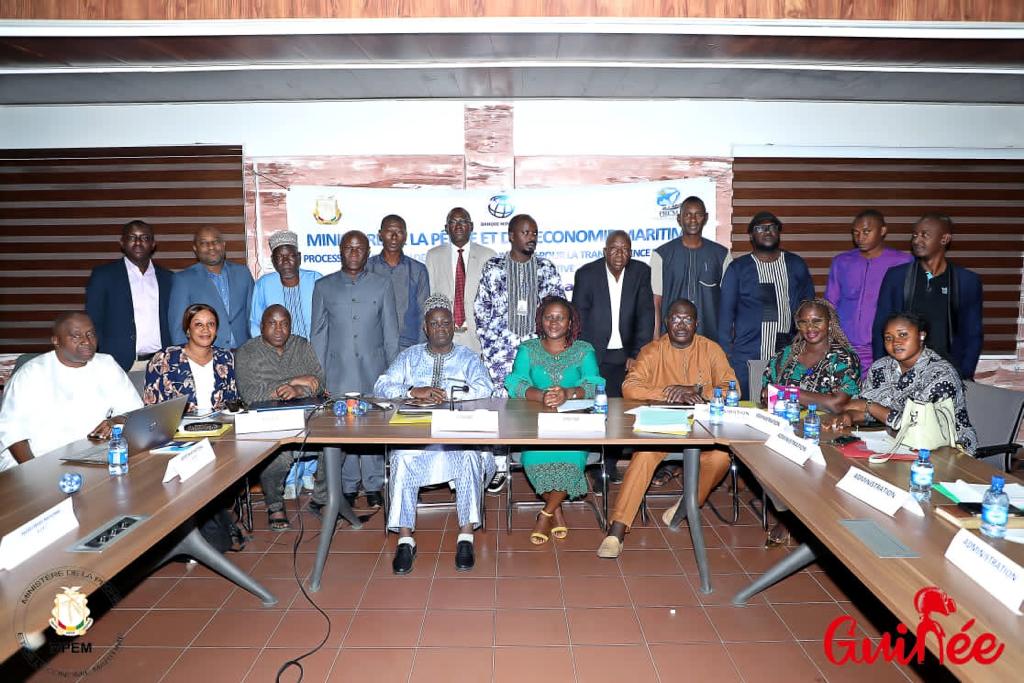
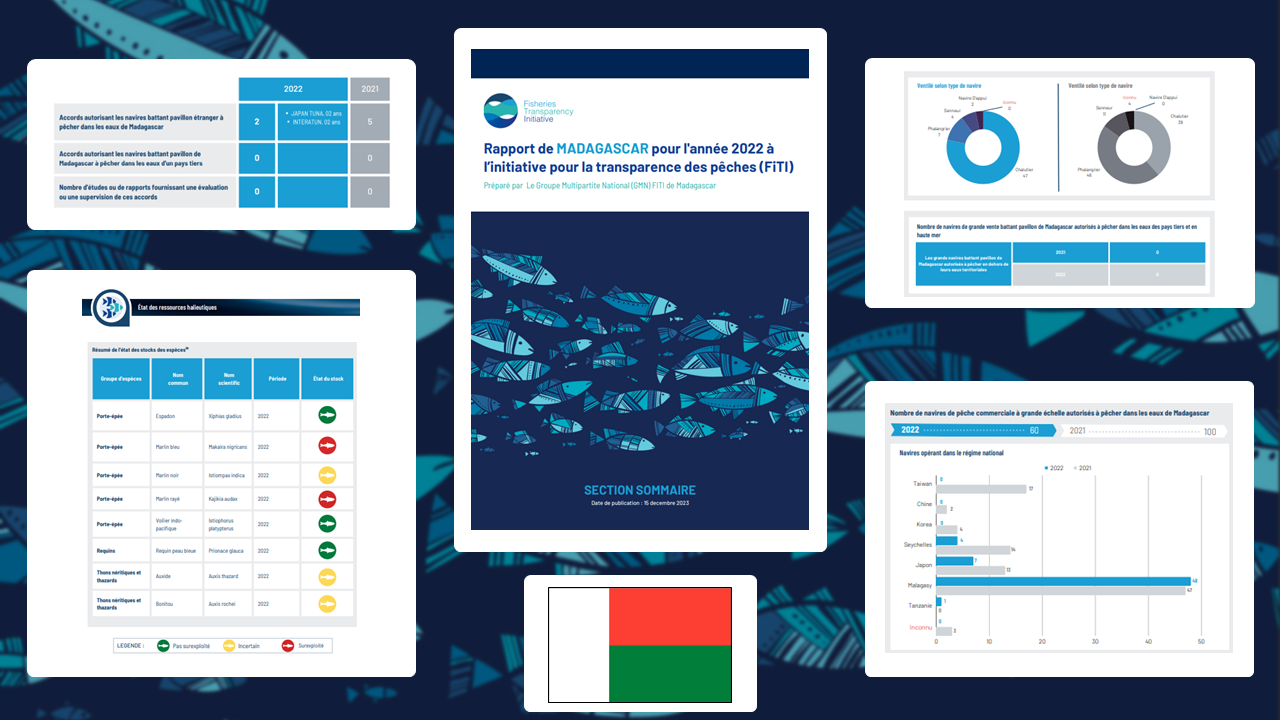
In a significant step, Madagascar‘s Multi-stakeholder Group (MSG) has published their inaugural FiTI Report, demonstrating their commitment to prioritising transparency within the fisheries sector. While the new report makes a range of previously unpublished information now publicly accessible, it also highlights a range of challenges.

In Africa and around the world, fisheries play a crucial role in supporting livelihoods, providing employment and driving social economic development. However, the future of the world’s fisheries is seriously threatened and this global challenge is far greater than any country can handle on its own.
The Fisheries Transparency Initiative, with transparency and participation as its cornerstones, makes an invaluable contribution to safeguard what is amongst the most vital resources on the planet.
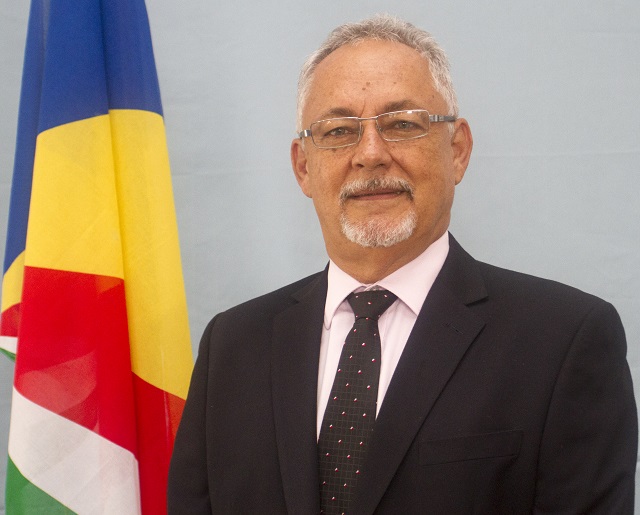
The government of Seychelles has a clear vision to make Seychelles’ fisheries the most transparent in the world.
We have nothing to hide. We have everything to share.
Reporting and transparency in all resource management has become an important requirement for most countries, and Seychelles is not an exception.
Through the Fisheries Transparency Initiative we are demonstrating our commitment to good governance and the establishment of responsive, inclusive institutions.
This is a tool for future development, and it must be our guiding principle to share all data and information on resources with all stakeholders.

Sustainable fisheries contribute significantly to food security, poverty reduction and increased resilience to the impacts of climate change.
But the sustainable management of fisheries is constantly undermined by several illegal activities, including corruption.
The International Anti-Corruption Academy (IACA) and the Fisheries Transparency Initiative are working together to address the key drivers of corruption and the different approaches to tackle this global problem.

For too long, we’ve been exploiting our resources beyond sustainable levels.
We must act quickly to reverse this trend and help our oceans regenerate. But this can only be achieved if governments, businesses and civil society work together and if more information on fisheries is available in the public domain.
The Fisheries Transparency Initiative, with its built-in multi-stakeholder orientation, is a unique effort to enhance the public availability of credible information for the benefit of a more sustainable management of marine fisheries.

Fisheries are a critical economic and nutritional resource for millions of people around the world.
Yet, the sustainable management of fisheries faces multiple challenges. Challenges that corruption exacerbates.
The recent Fishrot Files exposed how anonymous companies allegedly helped launder the proceeds of illegal fishing activities and to bribe government officials. It's a textbook example of how legal loopholes and secrecy jurisdictions enable corruption and environmental exploitation on a global scale. Greater transparency is vital to overcoming these challenges.
The Fisheries Transparency Initiative will make a valuable contribution to ensuring that becomes a reality.

Lack of transparency is still a major underlying factor behind many of the most negative aspects of global fisheries, including Illegal, Unreported and Unregulated (IUU) fishing, fleet overcapacity, overfishing, harmful subsidies, unmonitored transshipment, fraud, corruption, inadequate or absent fisheries management.
Even after 25 years of the FAO Code of Conduct for Responsible Fisheries calling for sustainable fisheries from a multi-dimensional angle with specific aspects involving transparency, basic information still often remains out of the public domain.
The Fisheries Transparency Initiative is a notable global effort supported by countries, the private sector, and civil society that presents a real opportunity to foster transparency and increase the credibility and quality of national fisheries information, reinforcing the basic principles of the FAO Code of Conduct for Responsible Fisheries.

Transparency and participation are key elements of good governance.
Through the FiTI, countries can not only demonstrate a clear commitment to good governance for responsible fisheries. It can also improve a country’s investment climate.

We can only address the tremendous challenges that global fisheries are facing in a collective effort, by bringing governments, business, civil society, academia and media together on this important quest.
The Fisheries Transparency Initiative makes a unique contribution to the sustainable development of fisheries by setting clear requirements on what is expected from countries regarding transparency and multi-stakeholder participation in fisheries.
I hope that many coastal countries join the FiTI and contribute to a global level playing field of transparency in marine fisheries.
Governments committed to implement the FiTI Standard
Annual FiTI Reports published by National Multi-Stakeholder Groups
Stakeholders engaged in National Multi-Stakeholder Groups
FiTI implementing countries validated for compliance against FiTI Standard
transparency briefings (short 'tBriefs') published in English, French, Spanish
Country transparency assessments conducted